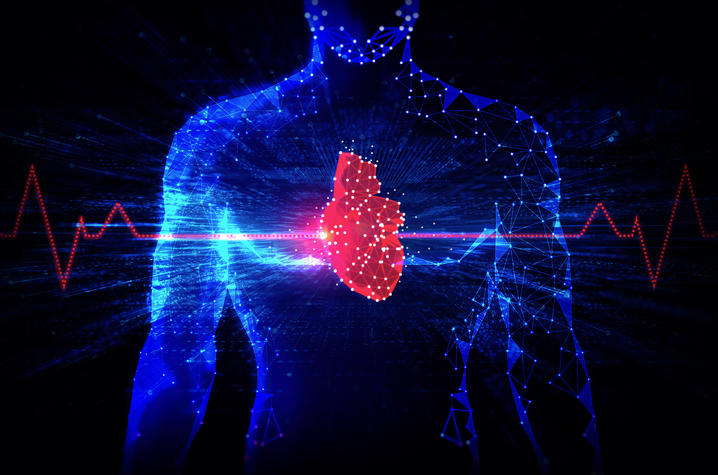PET scans offer faster, clearer images for diagnosing heart disease

The University of Kentucky Public Relations and Strategic Communications Office provides a weekly health column available for use and reprint by news media. This week’s column is by Talal Alnabelsi, M.D., cardiologist at UK HealthCare’s Gill Heart & Vascular Institute.
Lexington, Ky. (July 8, 2024) – When it comes to diagnostic imaging of your heart – such as MRI, CT, SPECT, PET – it can be overwhelming to know what kind of scan is right for you. What is your doctor looking for, and what exactly does the imaging show?
Imaging is vital in assessing and treating coronary artery disease (CAD), a condition in which plaque gradually builds up in the blood vessels. Over time, as the plaque accumulates, the blood vessels become narrower, reducing the blood supply to the heart muscle, which in turn could lead to symptoms such as chest pain or shortness of breath or a heart attack. Risk factors for CAD are high cholesterol, high blood pressure, family history of heart disease, diabetes, smoking and obesity. It’s important for cardiologists to have a clear image of the heart to determine the extent of the plaque buildup or whether the plaque is causing any blockage in order to develop an effective treatment and prevention protocol.
Traditionally, cardiologists have relied on a type of imaging called single photon emission computed tomography (SPECT) to diagnose coronary artery disease and the extent of blockage in your heart. This involves the injection of a radioactive tracer into the veins while a special camera picks up the traces of the tracer, photographing it as it moves through the heart. The photographs are assembled into a three-dimensional image, showing areas of tissue damage and reduced blood flow.
There is a new movement among cardiologists to use positron emission tomography, or PET scans, to assess coronary artery disease. Although the procedure for a PET scan is similar to SPECT – both involve photographing radioactive tracers as they move through the heart – PET scans are more accurate and have a better image quality than SPECT.
Other benefits of PET scan for cardiac imaging include:
- Overall scan time is shorter than for SPECT imaging, vital for patients who may find it difficult to be in the enclosed space of the imaging machine for a prolonged period
- Allows for the assessment of not just the blood flow, but how well the heart muscle itself pumps blood
- The ability to determine your coronary artery calcium score
- Can diagnose patients who continue to have chest pain despite no obvious blockage on cardiac catheterization or heart CT (microvascular disease)
- Lower dose of radiation, beneficial to patients who have to go undergo frequent imaging
- Image and assess patients who are suspected to have other conditions, such as cardiac sarcoidosis or endocarditis, scarring in the heart muscle or an infection from an implantable device such as a pacemaker.
Outside the scope of CAD, cardiac PET scans can image patients who have other suspected conditions including cardiac sarcoidosis or infections of implanted devices (pacemakers/defibrillators) or prosthetic heart valves.
While PET scans are not as widely available as SPECT, they give cardiologists a more complete picture of your heart’s health, reducing the need for alternative imaging tests or unnecessary invasive procedures. If your local health care facility does not offer PET imaging, ask your cardiologist for a referral.
UK HealthCare is the hospitals and clinics of the University of Kentucky. But it is so much more. It is more than 10,000 dedicated health care professionals committed to providing advanced subspecialty care for the most critically injured and ill patients from the Commonwealth and beyond. It also is the home of the state’s only National Cancer Institute (NCI)-designated Comprehensive Cancer Center, a Level IV Neonatal Intensive Care Unit that cares for the tiniest and sickest newborns and the region’s only Level 1 trauma center.
As an academic research institution, we are continuously pursuing the next generation of cures, treatments, protocols and policies. Our discoveries have the potential to change what’s medically possible within our lifetimes. Our educators and thought leaders are transforming the health care landscape as our six health professions colleges teach the next generation of doctors, nurses, pharmacists and other health care professionals, spreading the highest standards of care. UK HealthCare is the power of advanced medicine committed to creating a healthier Kentucky, now and for generations to come.




